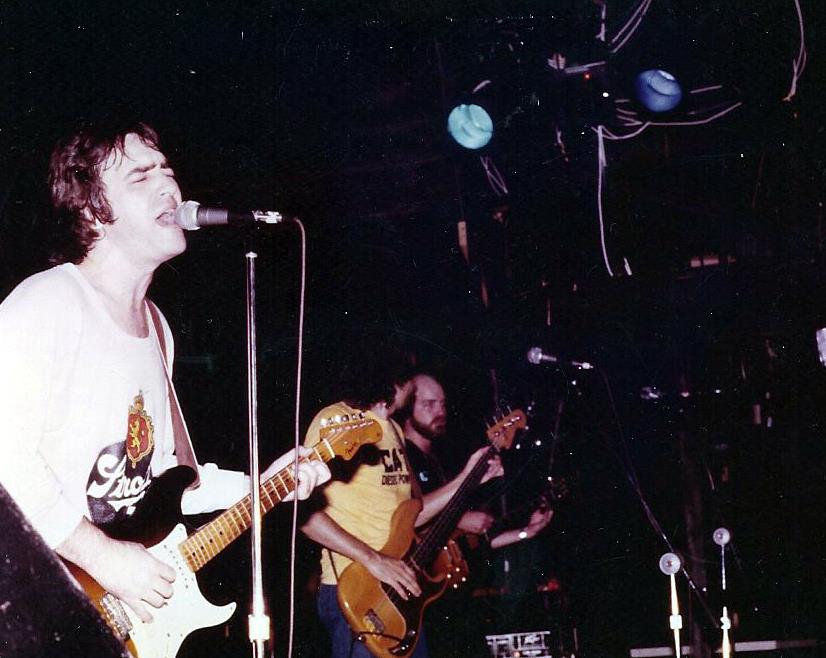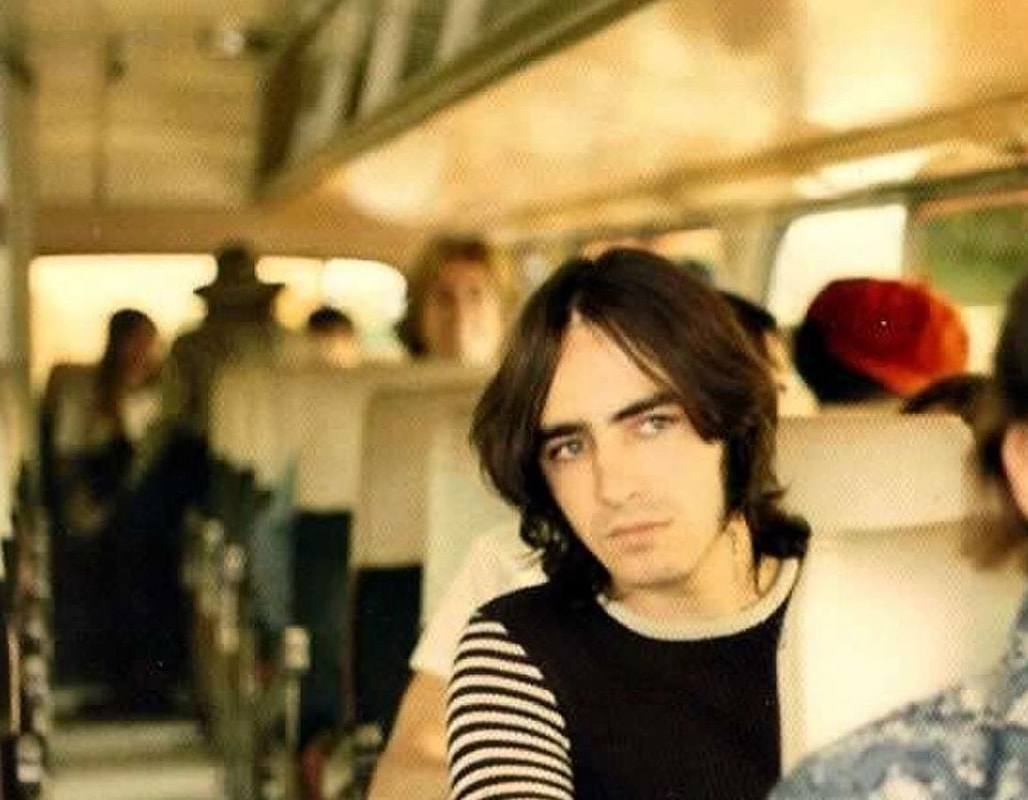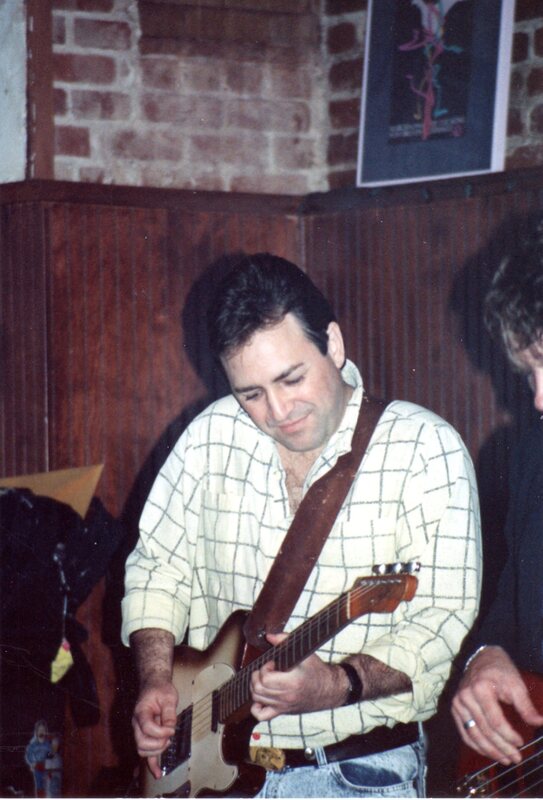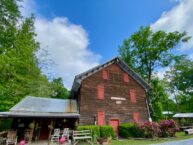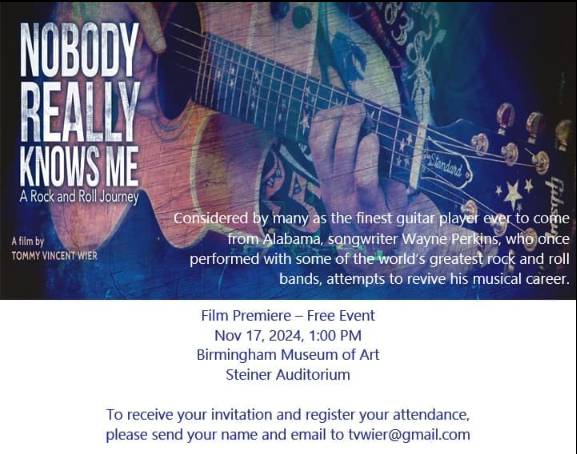
By Glynn “Cowboy” Wilson –
BIRMINGHAM, Ala. – Close to 300 friends and followers of Birmingham musician Wayne Perkins, many from the east side of town who came of age in the 1970s listening to the Alabama Power Band play at The Crossroads in Roebuck, nearly filled the Steiner Auditorium at the Birmingham Museum of Art on Sunday to see what all the hubbub was about on Facebook.
Tommy V. Wier, an independent filmmaker and formerly a producer with Alabama Public Television, had decided to take on telling Wayne’s story to try to move the ball forward on getting him accepted into the Alabama Music Hall of Fame along with his contemporaries like Eddie Hinton and Chuck Leavell.
What he came up with tells a story of Wayne’s career mainly as a sideman, a studio guitar player with some of the greats of rock and roll, including The Rolling Stones, Bob Marley and Joni Mitchell.
Unfortunately, since Wayne’s heyday in rock came before the era of MTV in the early 1980s, the documentary relies heavily on amateur video footage pulled from YouTube and the sound quality is not so great in places. The early part of the story spends too much time talking about bands only a few old timers will remember, including The Colours, The Vikings and Smith Perkins Smith, bands that went nowhere.
After Perkins traveled from Muscle Shoals to London in the early 1970s and ended up in the studio producing critical lead guitar overdubs on Marley’s records, which helped turn them into international hits, and cuts for the Stones that later came out on “Black and Blue,” Perkins spent the longest sustained time touring in his career with Leon Russell for a couple of years. Then he hooked up with his brother Dale and joined the Alabama Power Band in 1978, which recorded two albums with Capitol Records as “Crimson Tide” before breaking up in 1981.
I had talked to Wier myself back in February when I found out he was working on the film, after interviewing Perkins again about Joni Mitchell when she graced the Grammy stage for the first time, and offered to help him tell the story, since I was there for much of it myself.
We Lived in the Time of Joni Mitchell: Could the Grammys Give America the Hope We Need?
Being a one-man shop and relying on small grants from the Alabama Council on the Arts and such, he didn’t think he needed or could afford my help. So I wrote my own piece of literary journalism on Wayne’s life and times, which will now be the new lead chapter in the Third Edition of my memoir, Jump On The Bus.
It’s Only Rock ‘n’ Roll But I Like It
The documentary barely mentions Perkins playing with Lynyrd Skynyrd in passing near the end in a brief interview that must have been done after my story came out. The cuts he plays on with Skynyrd that were recorded early on in Muscle Shoals only came out later. Perkins is credited on Skynyrd’s “First and Last” album for tracks recorded earlier at Muscle Shoals Sound Studio, the “Preacher’s Daughter” and “Down South Jukin.”
While Skynyrd wrote much of their early work in the Shoals, they left town without releasing an album and signed with MCA Records and re-recorded the songs for release, including the hit song “Sweet Home Alabama” which was recorded in Studio One in Atlanta. The rest of the Second Helping album was recorded in Los Angeles.
While the film is a promotional treatment that could vey well get the attention of the hall of fame board, it does not capture what it was like to see Perkins and the band play and sing back in the day. It also does not deal with issues that hurt Perkins career, including the reasons for the breakup of the Crimson Tide band, and his health issues.
For those of us who lived the weekends at The Crossroads by the old bowling alley in Roebuck in the 1970s, watching and listening to the Alabama Power Band could be a mesmerizing experience. It was a great rock band to hear and know, the best club rock band in Birmingham and in the South for years. At one point bass player J.J. Jackson, who I counted as a close friend and associate for awhile, told me the band had a repertoire of over 700 songs. You could not stump them with requests.
It wasn’t the original music that came later that had everyone enthralled in those days. To see Perkins and the band perform Stevie Wonder’s “Superstition” or Led Zeppelin’s “Kashmir” could be a near spiritual experience, especially enhanced by the right elixirs and drinks.
Bobby Delander was also a great guitar player and singer, and with J.J. Jackson on bass and vocals and Dale Perkins on drums the rhythm section was as solid as a rock, reminiscent of other great bands in the South at the time like the Atlanta Rhythm Section. That’s why the name Alabama Power Band was such a good name. It’s too bad they had to change the name for the records because Alabama Power threatened to sue.
Then there was Greg Straub on keyboards, whose dad purchased the club after a disco failed in the space and turned it into one of the largest rock clubs in the South. While the fire marshal limit for the room was around 750, the band would often pack close to 1,000 people into the club on Friday and Saturday nights in those days, even before Wayne joined the band and they signed the record deal.
When executives from Capitol Records came to see them play, they were impressed not just with the sound of the band, with help from Bob Montgomery on the sound board. They were amazed at the crowd following the band, which helped them land the record deal.
I used to sit in with the band on drums often, usually in the last set so Dale could take a break for a rum and coke and see how the band and his drums sounded. One night I remember getting up on the stage to play and J.J, who kept the set list, called for Joe Walsh’s “Rocky Mountain Way.” We played about a 12 minute jam version of it and the crowd went wild. Delander played the talk box part perfectly like the record.
Perkins was not able to attend the film’s premier since he was admitted to the hospital this week for ongoing health issues, something that has plagued his life and career for years, and prevented others from telling his story sooner, including me. J.J. Jackson died a few years ago and I never interviewed him in-depth about what happened to make the band breakup. Dale has told me his version, back when he recruited me to run sound for The Mixx band in 1982.
Delander did not make it to the film premier, so I called to ask for his version of what happened.
He couldn’t remember all the details, but he confirmed that there were no big hits on either of the records, so the songs were not playing on the radio. The albums did not sell well enough to make back more than the $75,000 advance, and there were no royalties coming in.
The band was not touring much either, only playing a few backup gigs with other bands. They had the gig at the Crossroads when they were in town, and life was good then, with lots of free time for partying at one of Alabama’s lakes on Sundays and Mondays off. The bands in rock clubs played Tuesday through Saturday nights in those days. There are not many gigs like that anymore. It’s all one nighters or Friday and Saturday nights, and mostly singers playing solo guitar.
Then there were money problems with the Capitol Records management and some friction developed between Wayne and J.J. There were other bruised egos as Wayne took the limelight after joining the band, even though his songs and connections led to the contract with Capitol. When it looked like the run at the big time was over, Mr. Straub sold the club to Al Pilkington. He changed the name to Al’s Crossroads.
So the members of the band had to find other gigs and jobs.
“Nobody really got mad or fired or anything like that,” Delander said. “It just fizzed out.”
So as Mark Harrelson of Boutwell Studios told me back in February, if the documentary tells some of the story and helps get Perkins in the Hall of Fame, and makes Wayne and Dale feel better about getting their due for their family’s role in Birmingham and Alabama’s music history, it could serve a positive purpose.
It’s just too bad there was not more thought given to the questions asked and subjects interviewed. And a full soundtrack would have been nice, but of course that would have cost money for licensing the hit songs. Some actual cinematography would have been good, from some of the places mentioned in Perkins’ travels. Like maybe the Tennessee River at sunset down by Scott Boyer’s place on the water in the Shoals, if not LA, London and Kingston, Jamaica.
In any event, it was good to see someone try to tell the story. And we ran into a number of old friends before the show and after at the art museum reception, including Kathy Shannon, a twin who grew up right down the street from us in the neighborhood by Jefferson State Community College. Her mother was an English teacher at Erwin High School for many years. She once wrote a recommendation letter for me to get accepted into the University of Alabama in 1981 – after I quit rock and roll and went back to college to study journalism.
Nina Pappas Goolsby was also there and made a point of saying hello. She hung out with the K.D. Ryzer band briefly when we lived on the communal farm off Carson Road between Center Point and Gardendale, where we used to hold our own outdoor concerts like a local version of Woodstock.
After the reception, a few of us went over to The Garage bar on Southside for cocktails. It had been quite a few years since frequenting the place, where many good times were had in days gone by.
More Pics
___
If you support truth in reporting with no paywall, and fearless writing with no popup ads or sponsored content, consider making a contribution today with GoFundMe or Patreon or PayPal.


